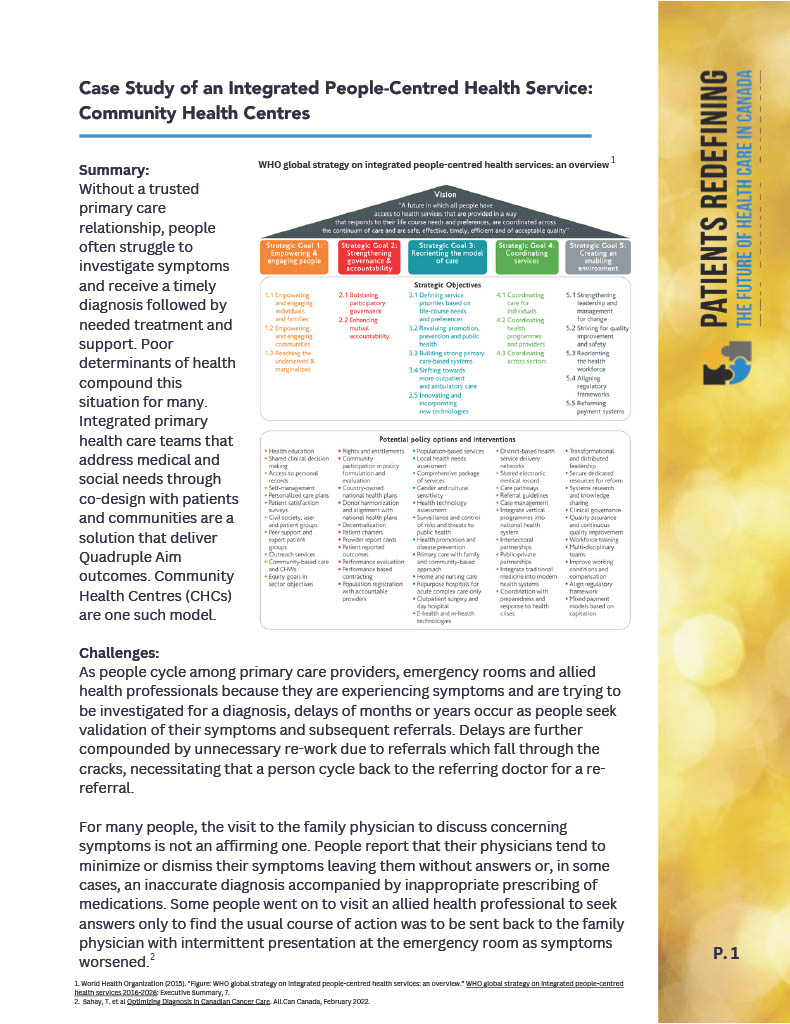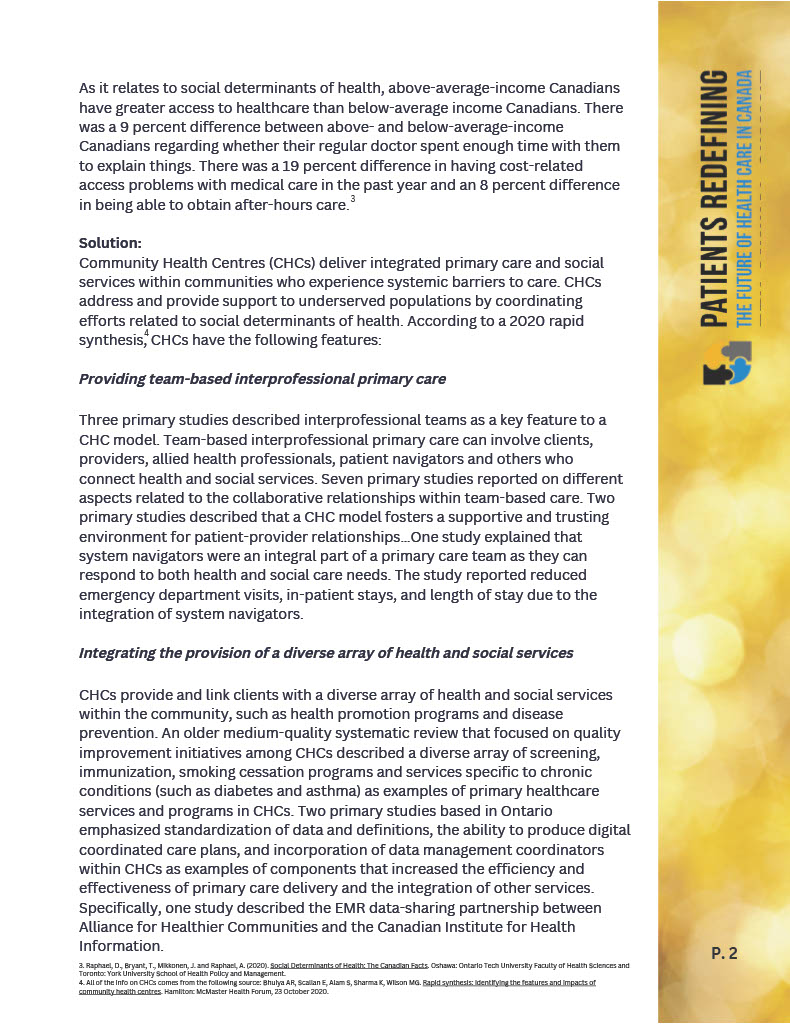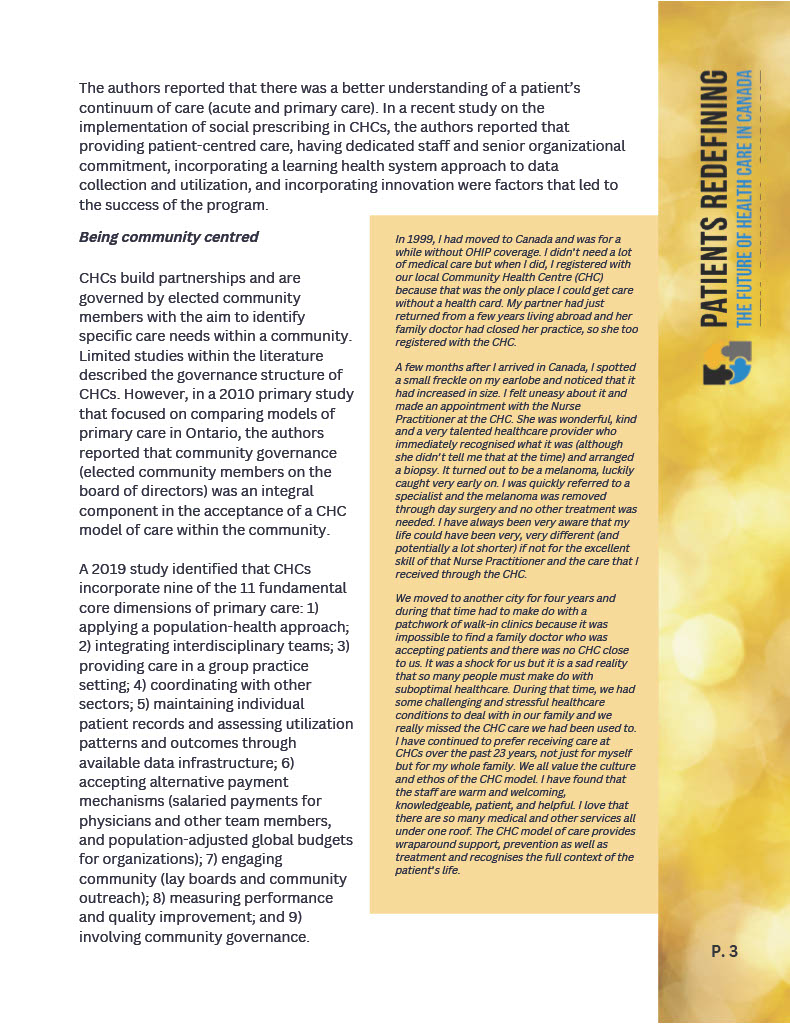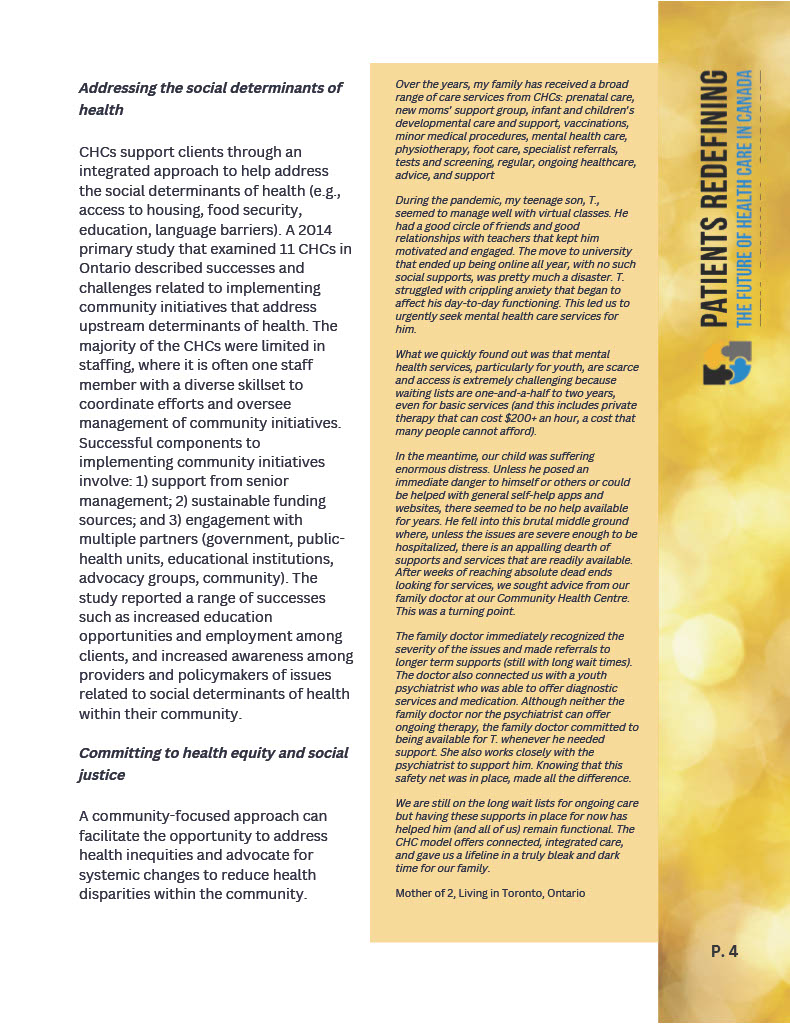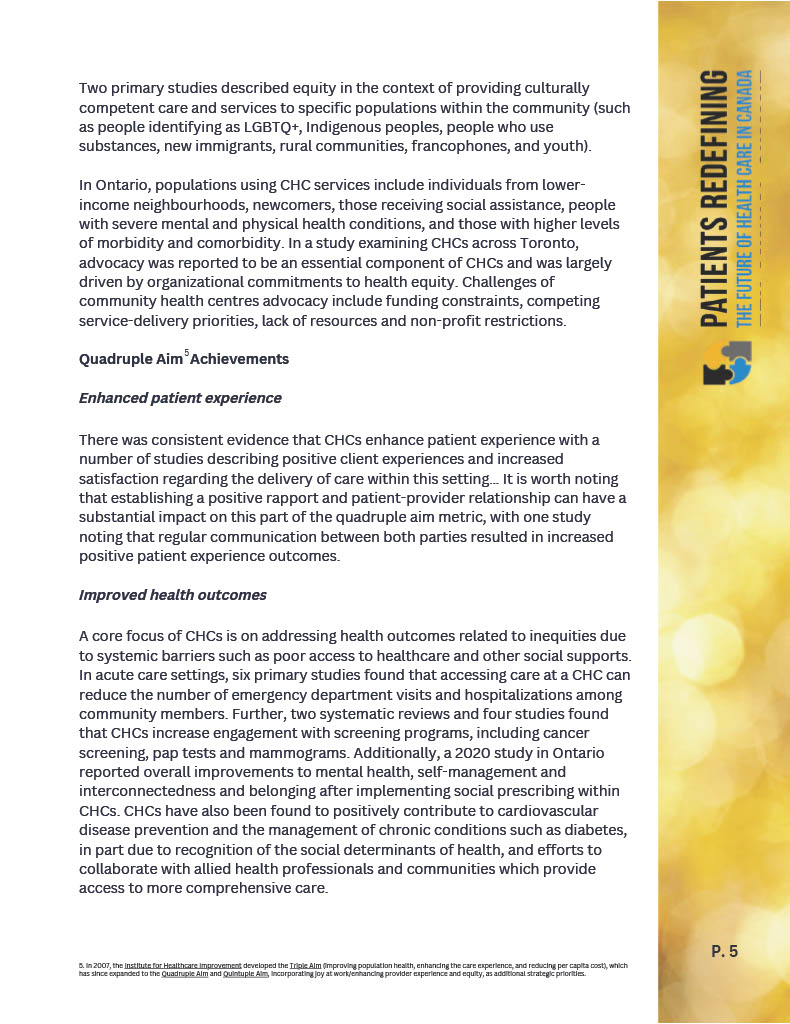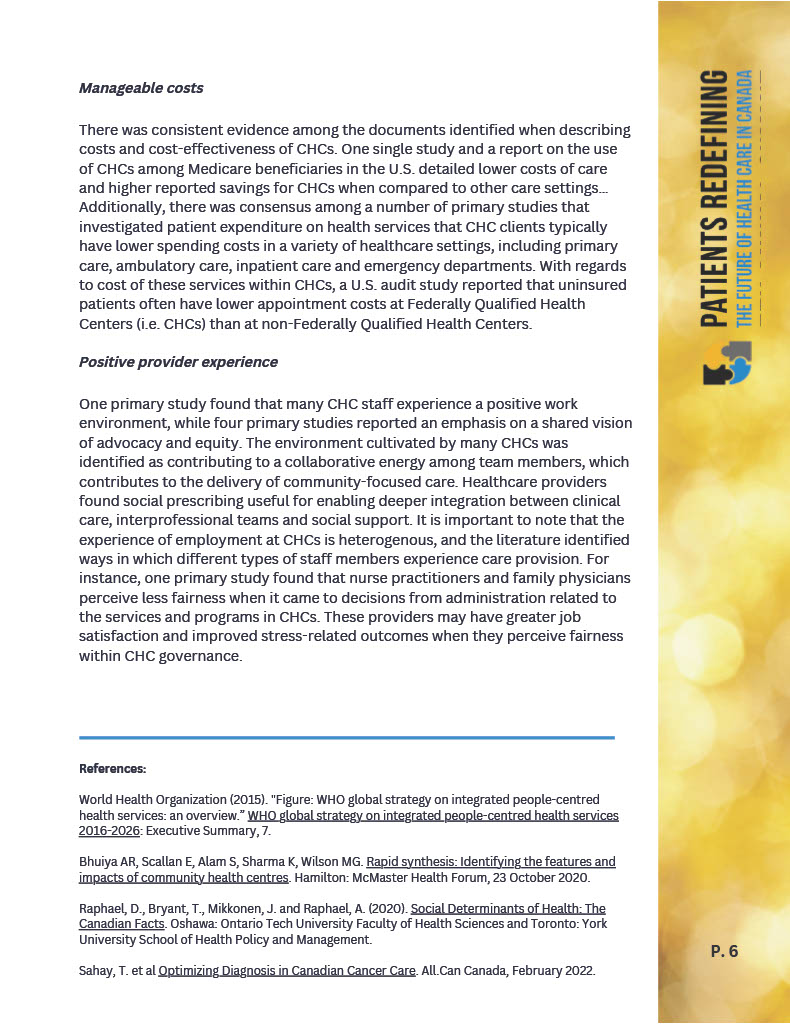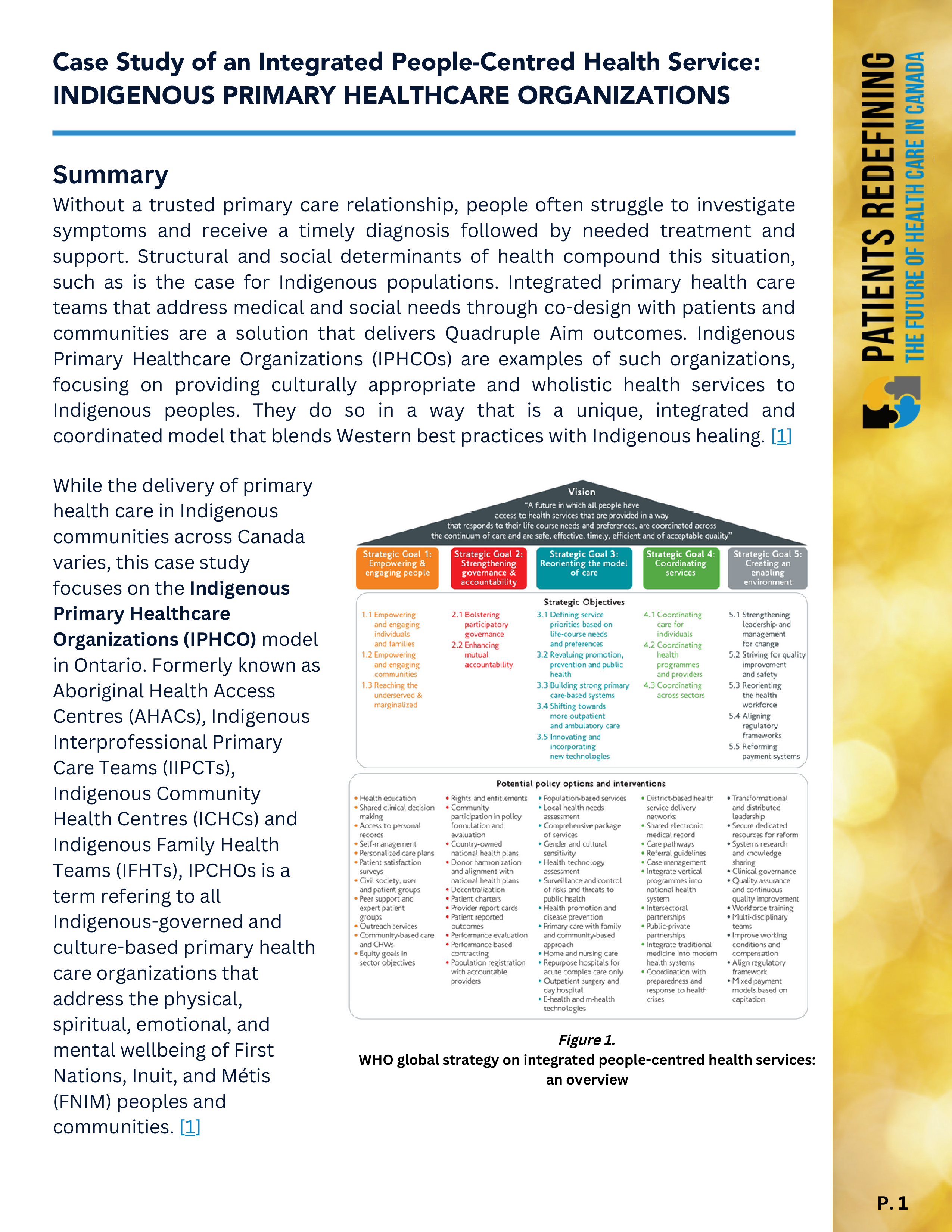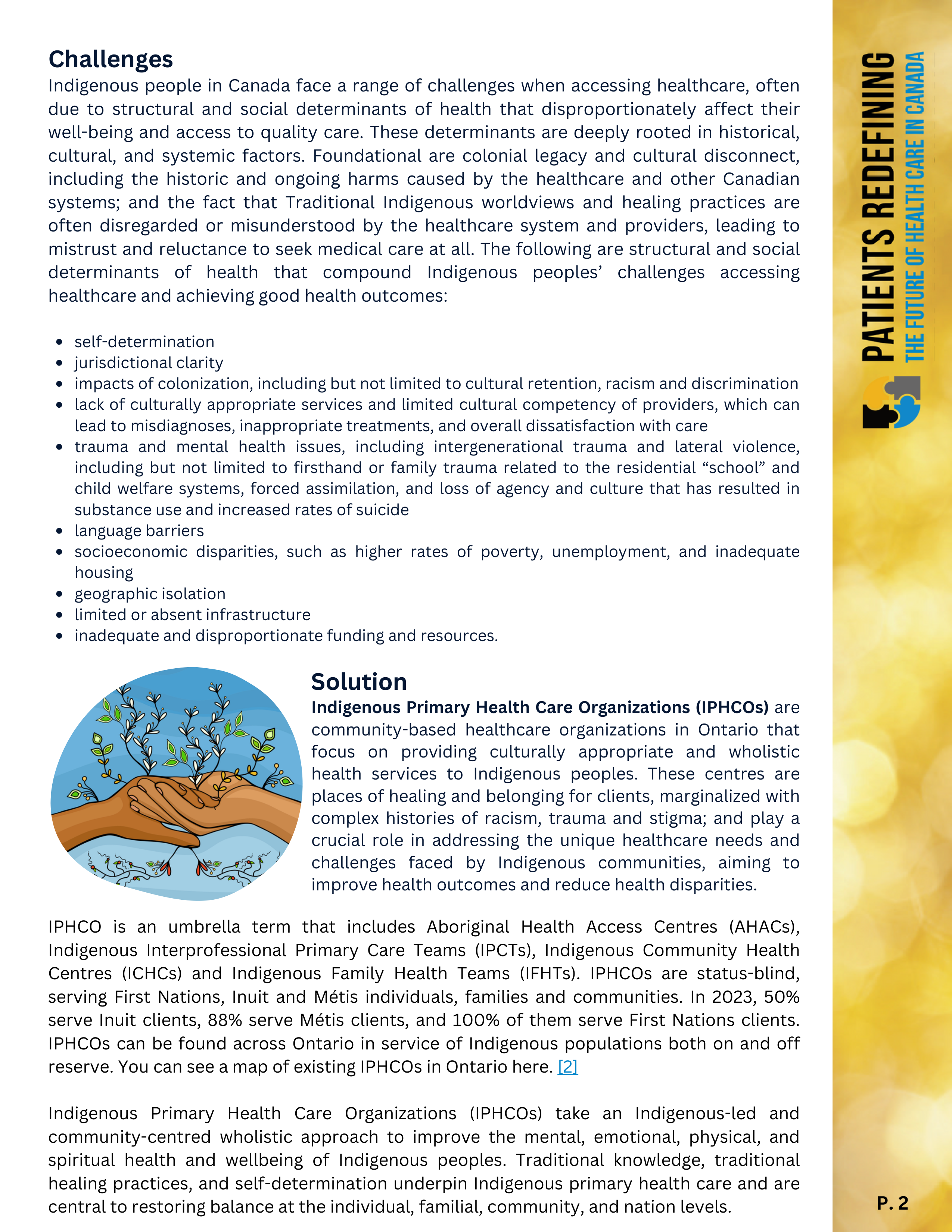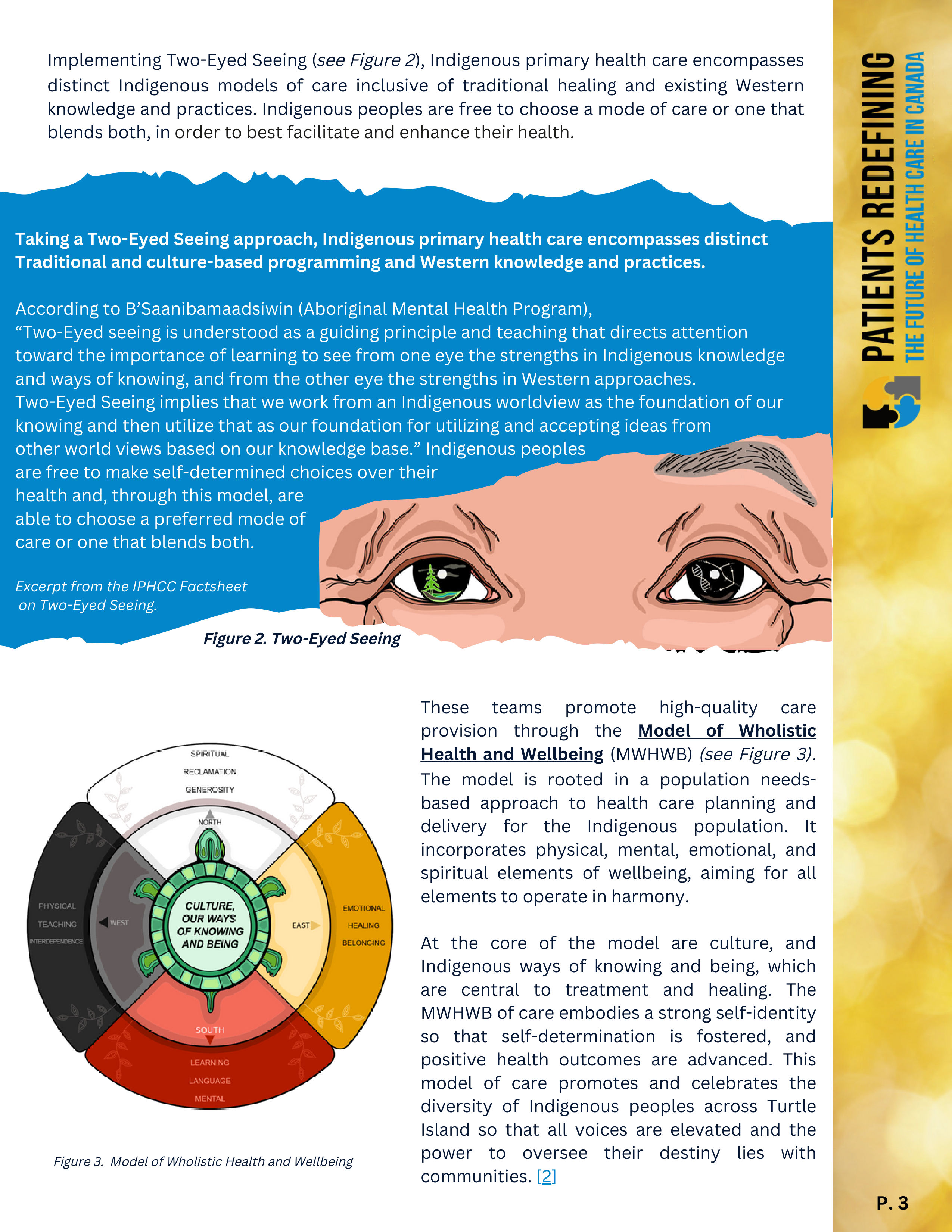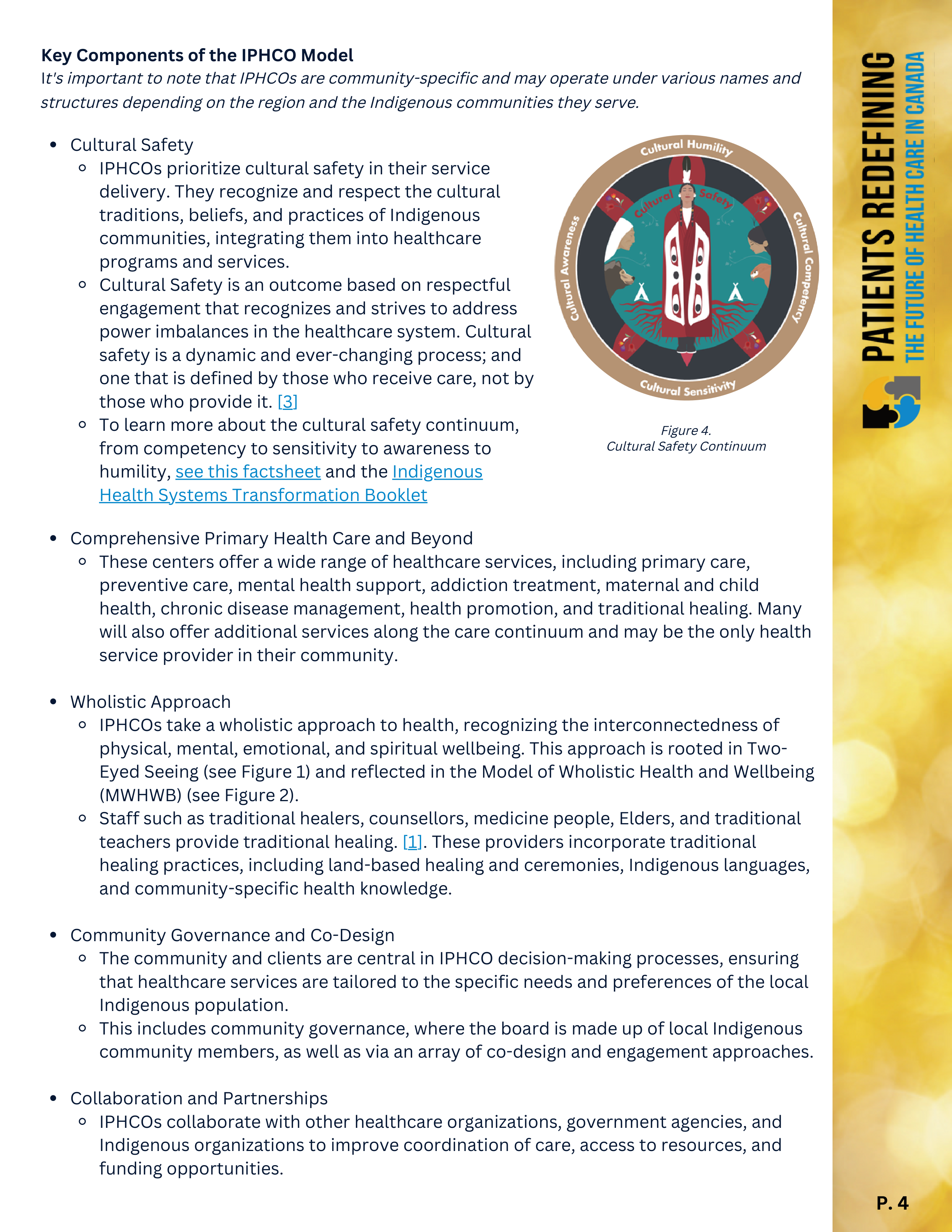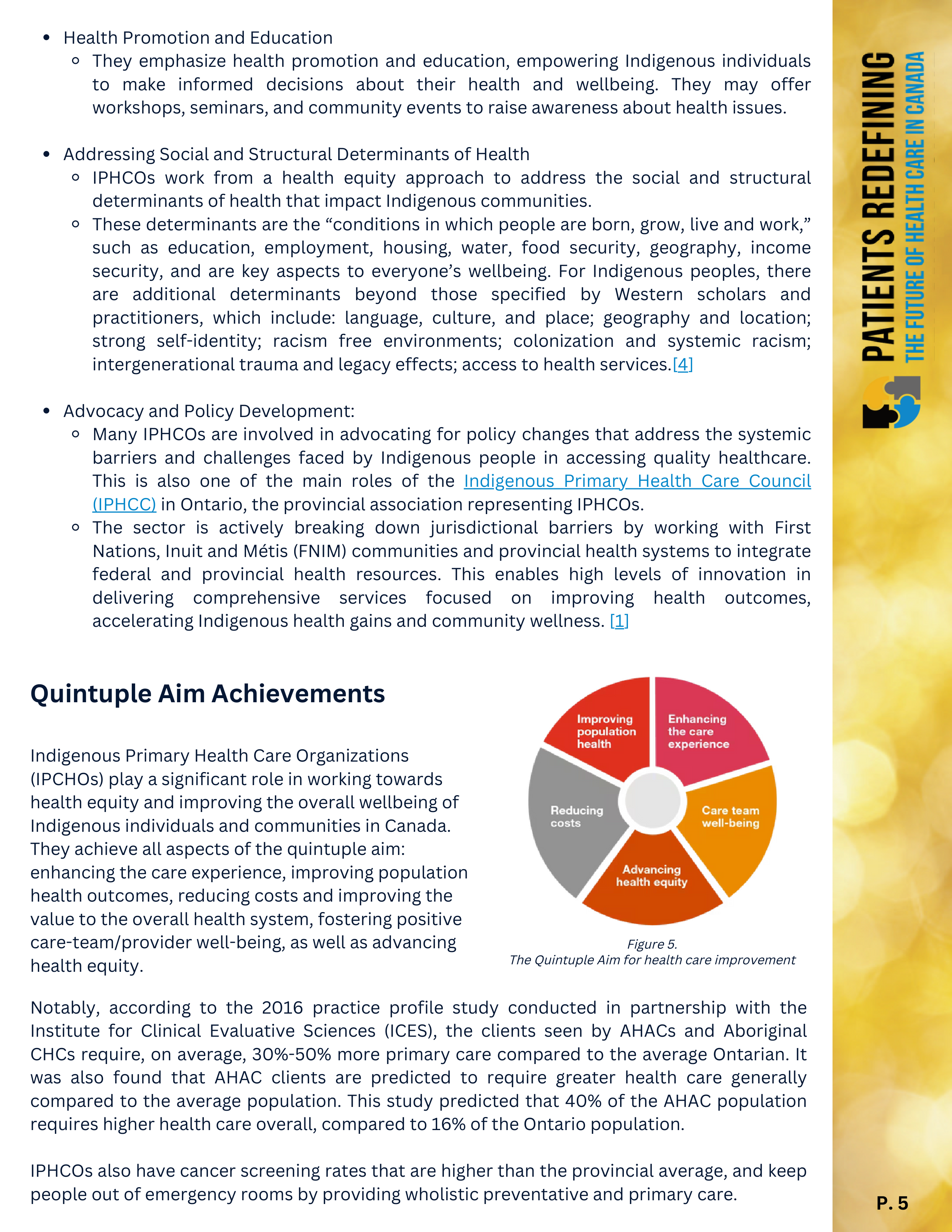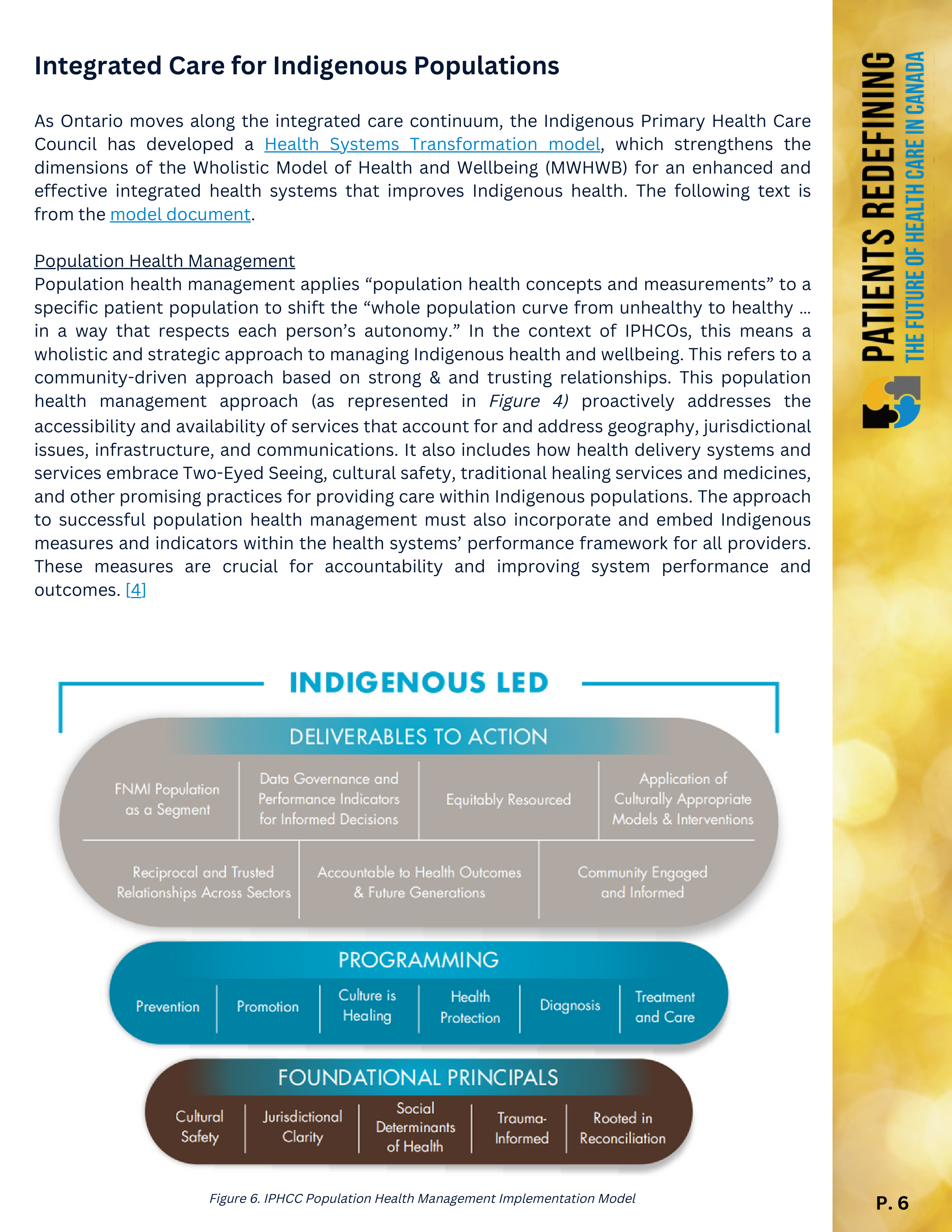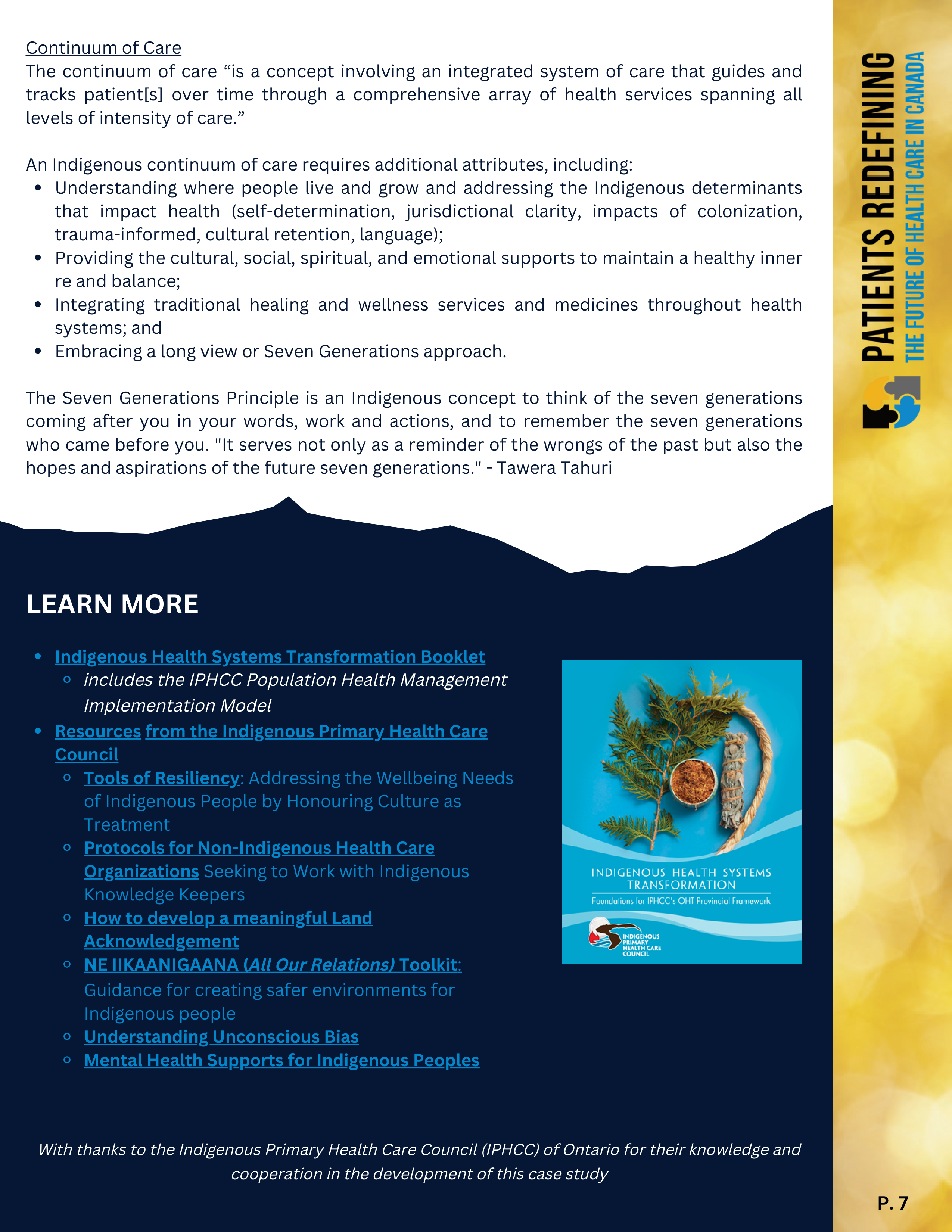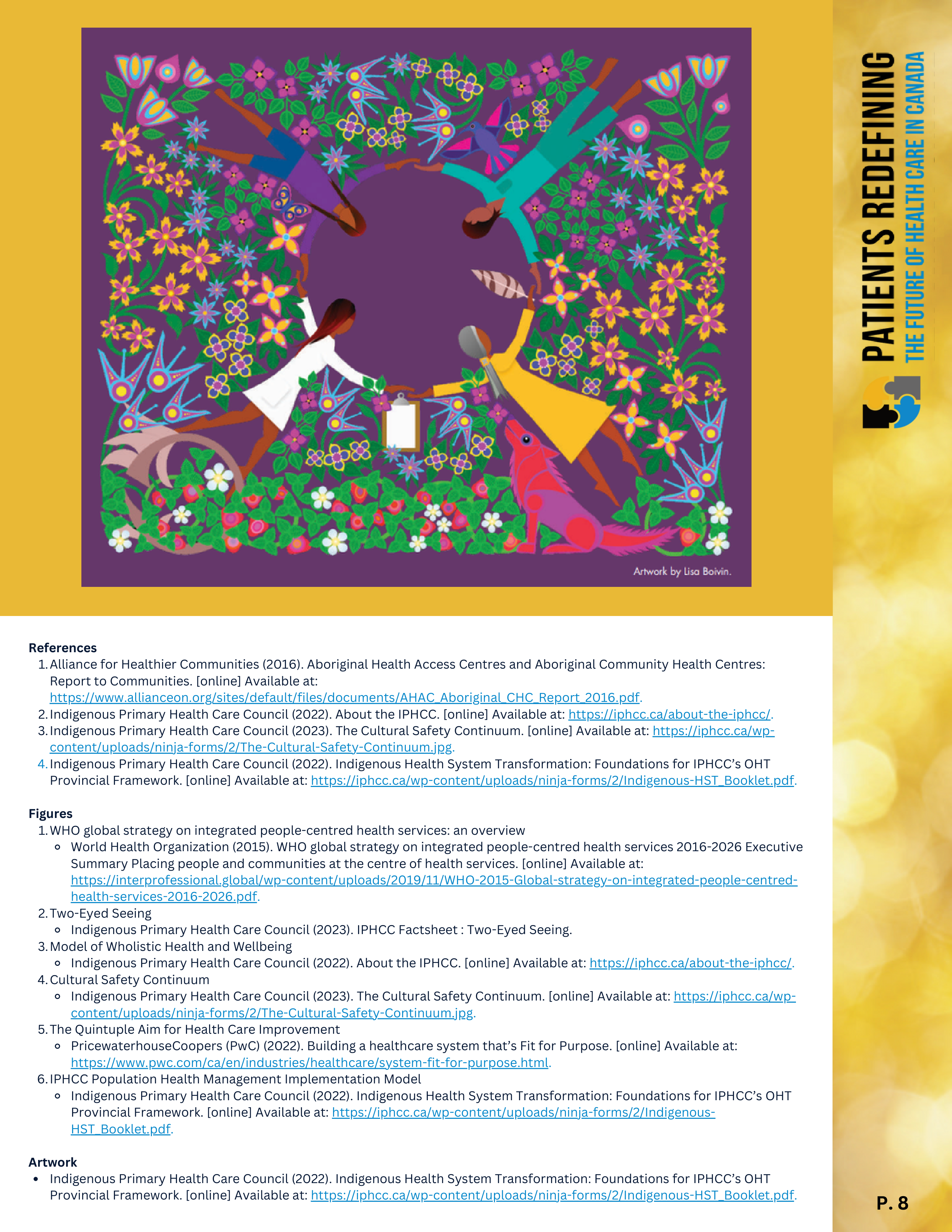About the Integrated Models of Care Working Group
Formed from the 2019 fourth annual Summit, the Integrated Models of Care (IMOC) Working Group has the following purposes:
1) To identify and examine promising, good, and best practices in integrated models of care*; and
2) To help spread these promising, good, and best practices to other jurisdictions of Canada, including rural and remote regions.
*The identified promising, good, and best practices do not need to be specific to a particular health condition. “Integration” includes the integration of physical and mental health; the determinants of health; equity; cultural safety; and trauma-informed care. In addition, models that specifically address Indigenous health and healing are of particular interest.
Case Study: Community Health Centres
Case Study 2: Indigenous Primary Healthcare Organizations
IPHCOs are community-based healthcare organizations in Ontario that focus on providing culturally appropriate and wholistic health services to Indigenous peoples. These centres are places of healing and belonging for clients, marginalized with complex histories of racism, trauma and stigma; and play a crucial role in addressing the unique healthcare needs and challenges faced by Indigenous communities, aiming to improve health outcomes and reduce health disparities.
To learn more about the various summit initiatives click the buttons below
Thank you to our sponsors!
Coming soon!
Formé lors du 4e sommet annuel qui a eu lieu en 2019, le Groupe de travail sur les modèles de soins intégrés poursuit les objectifs suivants :
1) Déterminer et examiner les pratiques prometteuses, les bonnes pratiques et les pratiques exemplaires dans les modèles de soins intégrés*; et
2) Aider à diffuser ces pratiques prometteuses, bonnes pratiques et pratiques exemplaires dans d’autres régions du Canada, y compris dans les régions rurales et éloignées.


